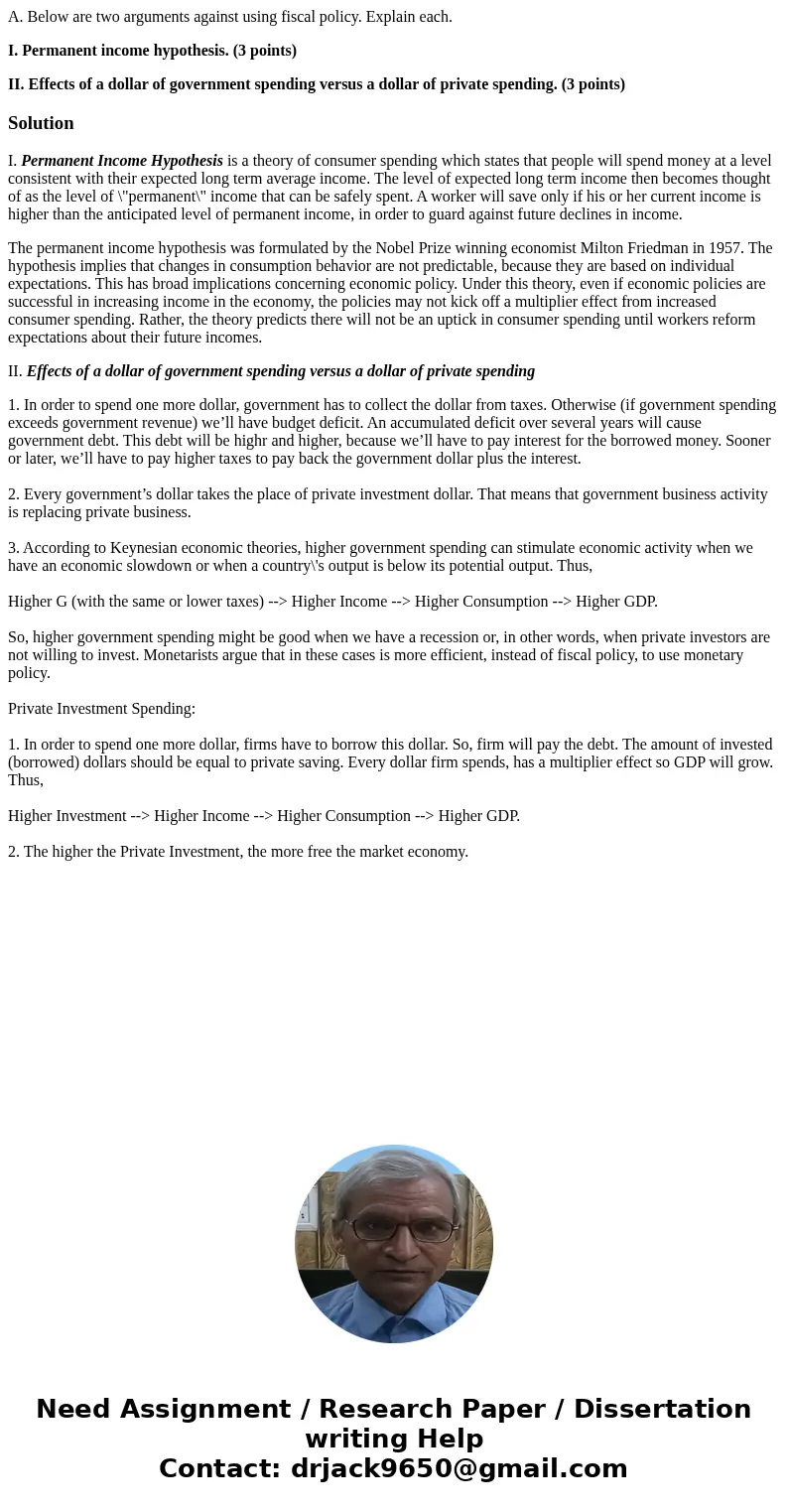A Below are two arguments against using fiscal policy Explai
A. Below are two arguments against using fiscal policy. Explain each.
I. Permanent income hypothesis. (3 points)
II. Effects of a dollar of government spending versus a dollar of private spending. (3 points)
Solution
I. Permanent Income Hypothesis is a theory of consumer spending which states that people will spend money at a level consistent with their expected long term average income. The level of expected long term income then becomes thought of as the level of \"permanent\" income that can be safely spent. A worker will save only if his or her current income is higher than the anticipated level of permanent income, in order to guard against future declines in income.
The permanent income hypothesis was formulated by the Nobel Prize winning economist Milton Friedman in 1957. The hypothesis implies that changes in consumption behavior are not predictable, because they are based on individual expectations. This has broad implications concerning economic policy. Under this theory, even if economic policies are successful in increasing income in the economy, the policies may not kick off a multiplier effect from increased consumer spending. Rather, the theory predicts there will not be an uptick in consumer spending until workers reform expectations about their future incomes.
II. Effects of a dollar of government spending versus a dollar of private spending
1. In order to spend one more dollar, government has to collect the dollar from taxes. Otherwise (if government spending exceeds government revenue) we’ll have budget deficit. An accumulated deficit over several years will cause government debt. This debt will be highr and higher, because we’ll have to pay interest for the borrowed money. Sooner or later, we’ll have to pay higher taxes to pay back the government dollar plus the interest.
2. Every government’s dollar takes the place of private investment dollar. That means that government business activity is replacing private business.
3. According to Keynesian economic theories, higher government spending can stimulate economic activity when we have an economic slowdown or when a country\'s output is below its potential output. Thus,
Higher G (with the same or lower taxes) --> Higher Income --> Higher Consumption --> Higher GDP.
So, higher government spending might be good when we have a recession or, in other words, when private investors are not willing to invest. Monetarists argue that in these cases is more efficient, instead of fiscal policy, to use monetary policy.
Private Investment Spending:
1. In order to spend one more dollar, firms have to borrow this dollar. So, firm will pay the debt. The amount of invested (borrowed) dollars should be equal to private saving. Every dollar firm spends, has a multiplier effect so GDP will grow. Thus,
Higher Investment --> Higher Income --> Higher Consumption --> Higher GDP.
2. The higher the Private Investment, the more free the market economy.

 Homework Sourse
Homework Sourse